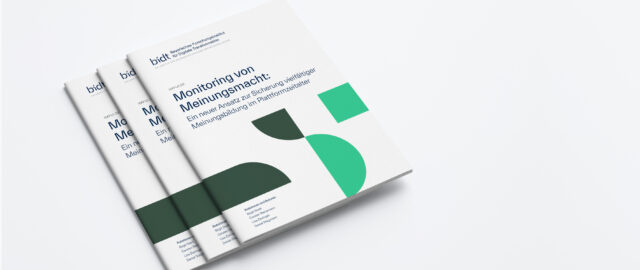The Free State of Bavaria is funding digitalisation projects by seven outstanding scientific talents with a total of around three million euros. As the Minister of State for Science and the Arts Markus Blume announced today, the selected researchers will join a new Graduate Centre at the Bavarian Research Institute for Digital Transformation (bidt), an institute of the Bavarian Academy of Sciences and Humanities.
BIDT GRADUATE CENTER
The researchers work at the universities in Bayreuth, Erlangen-Nuremberg and Regensburg, as well as the two universities in Munich. Their research encompasses improving imaging techniques for early breast cancer detection, studying political polarization and misinformation on social media, and investigating the intersection of artificial intelligence and distributive justice.
Excellent minds for a mega-topic of our time: We support outstanding postdocs in the bidt Graduate Center on their way to staying in science permanently. And thanks to their research projects, we gain valuable insights into technical, economic or social aspects of digitalisation. This is a sustainable win-win situation for science and society.
Markus Blume, Minister of State for Science and the Arts
A group of seven up-and-coming researchers have been selected for funding by an expert committee outside of Bavaria. Starting in October 2022, they will receive support for up to four years, including funds for postdocs, research, and networking opportunities. The Bavaria-wide Graduate Centre, coordinated by bidt, will provide a supportive environment for their diverse projects and professional development in the field of digitalisation.
The following researchers and their research projects will be funded
Friedrich-Alexander University Erlangen-Nuremberg (2):
- Dr Andrzej Liebert: Virtual Dynamic Contrast Enhancement – transforming breast cancer screening with MRI using the power of digitalisation;
- Dr. Maximilian Schäfer: The Networked Human – Health Monitoring in the Internet of BioNanoThing
Ludwig-Maximilians University Munich (2):
- Dr. Korbinian Rüger: Artificial Intelligence and Distributive Justice;
- Dr. Anna Kerkhof: The economics of social media: Hate speech, political polarisation, and the spread of misinformation
University of Bayreuth:
- Dr. Annamaria Fábián-Trost: Digital communicative strategies in social media for the inclusion of people with disabilities
Technical University of Munich:
- Dr. Allister Loder: App-based mobility management for net-zero and self-sufficiency
University of Regensburg:
- Patrick Struck: Quantum Security of Cryptographic Algorithms
Source: Press release by the Bavarian State Ministry of Science and the Arts, 02.09.2022




